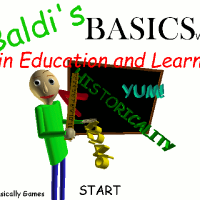What Is Special Education? - Blog

What Is Special Education?
What is Special Education?
Special education refers to the practice of teaching and supporting children who have difficulties learning in a traditional educational setting. These pupils may have learning disabilities, physical or behavioral issues, or other obstacles which make it difficult for them to function normally in class.
They typically have a teacher who helps them reach their individual educational objectives and needs in the classroom, often through an Individualized Education Plan (IEP). Teachers and other staff members collaborate closely with parents to help students navigate the school system and receive services tailored specifically for them.
The top teachers excel in researching and testing data-driven strategies, materials and resources that can enhance outcomes for students with special needs. These educators often devote significant effort into researching these techniques so they can share their findings with colleagues.
These teachers understand that they do not need to be experts in every subject to do their job well. Instead, they must be able to recognize a student’s unique learning style and use this insight to foster an encouraging atmosphere that boosts students’ self-esteem and abilities.
This type of teaching requires patience and perseverance from the teacher, as well as an openness to trying new approaches that haven’t worked before.
Great teachers possess the ability to work well with people of all ages and abilities, as well as being constantly striving to enhance their instruction. This demonstrates that they value their students and are dedicated to improving their education.
A great teacher is patient and kind to their students, understanding that some children struggle with handling misunderstandings or conflicts in the classroom. They do not let this cause them to become frustrated or lose trust with their pupils, which could negatively affect both classroom relationships and academic results.
One of the most essential skills for special education teachers is cultivating and maintaining positive relationships with students and their families. This also contributes to a stronger bond with administrators, who are likely more supportive of the teacher’s initiatives.
For the best special education, board certification in special education is a wise idea. This voluntary but invaluable credential is often sought-after by employers and schools when hiring new teachers.
Though it may take some time, certification in this field ensures you possess a comprehensive knowledge of the law and its nuances. Furthermore, it serves as an excellent opportunity to demonstrate your expertise to employers and parents.
Maintaining your classroom organization is essential for teaching effectively and creating a supportive atmosphere for your students. To do this, color-code folders and notebooks, along with labeling different areas in the classroom will help keep work neat and orderly, increasing students’ self-confidence in the learning environment.




